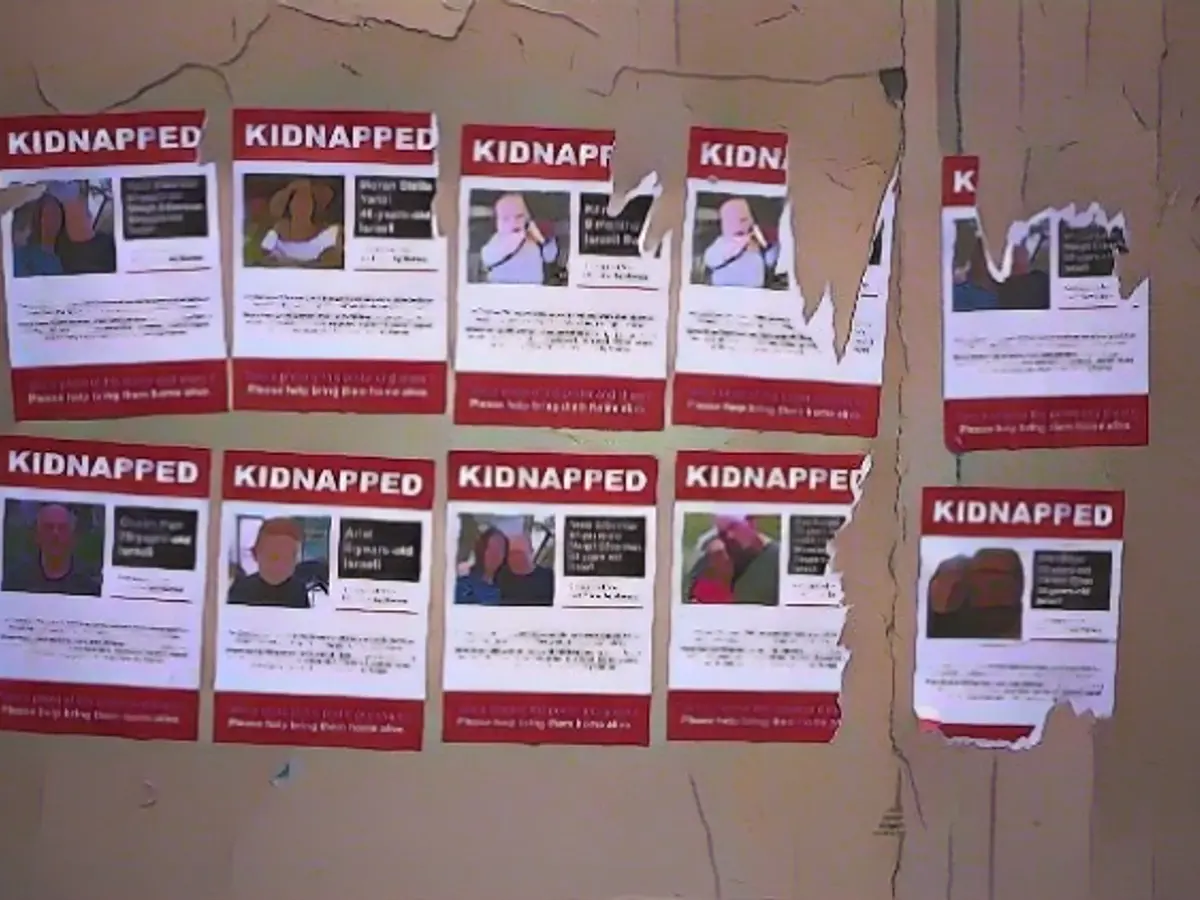Finding Solace in Each Step Home: Israeli Soldiers' Mission to Reunite 30 Children with Their Loved Ones
Tomorrow, Israel may welcome 50 hostages back into its fold, including 30 innocent children who have experienced the brutal clutches of Hamas. The Israeli military has prepared their soldiers with a unique set of instructions to navigate this delicate task, ensuring the well-being of these young souls who have endured captivity. Hugs are encouraged, but silence about their parents' whereabouts is a necessity.
In the Shadows of Conflict:
The Israeli government and military are readying their troops for the impending release of Israeli hostages, with a special focus on children's needs. According to Israeli media outlets, these instructions were crafted by the Haruv Institute, renowned for its work in the prevention of child abuse, on behalf of Israel's Ministry of Welfare and Social Affairs. This information has been substantiated by the ministry itself.
This conflict between Israel and Hamas has left a dark streak. The massacre on October 7 saw around 1,200 Israeli lives claimed and around 240 individuals abducted as hostages in the Gaza Strip. Hamas wishes to release 50 of these captives in the first major exchange of hostages and prisoners. Among the 50 hostages, 30 are children, while eight are mothers and twelve elderly women, struggling with various health issues. In return, Israel is poised to release 150 Palestinian prisoners.
"I am Your Safe Haven:"
The Israeli army has instructed its soldiers to provide a soldier as an escort, either male or female, for each child on their journey back to Israel from the Gaza Strip. Upon receiving the children, soldiers are encouraged to introduce themselves and assure the children of their safety: "Hello, I'm [Name], and I'm a soldier in the Israeli army. You are safe with me. I will bring you home."
The soldiers should inquire about the children's well-being, checking if they are cold or warm and if they are thirsty. If the children cannot walk, the soldiers are permitted to offer assistance, but only with explicit consent and provision of valid reasons.
Warriors with Heart:
The soldiers are to remain mostly silent, avoiding any unnecessary questions. This restraint is necessary for the sake of the children's fragile state, which may already be weighed down by the grueling memories of their time in captivity. Six Israeli hospitals have been prepared to receive these child hostages, offering a haven of support and care.
When children ask about their parents, the soldiers are instructed to refrain from disclosing any information. This is to prevent further distress and maintain a sense of security for the fragile children.
Preparing for the Unimaginable:
To better prepare themselves for this onerous task, Israeli soldiers are advised to seek professional help before and after the release of the children. This will enable them to process their experiences better and offer a safe and supportive environment to the child hostages during this difficult time.
Enrichment Insights
Faced with the challenge of handling released child hostages, Israeli soldiers and authorities rely on organizations like the Haruv Institute, which focuses on family violence and child abuse prevention. The guidelines and instructions for the soldiers aim to minimize trauma, ensure immediate medical and psychological support, and facilitate a safe and respectful return to their families.
The impact on these children's emotional well-being is profound, given the horrors they've experienced during captivity. Professional medical and psychological assistance is a key component to help them cope and heal from their traumatic experiences.








